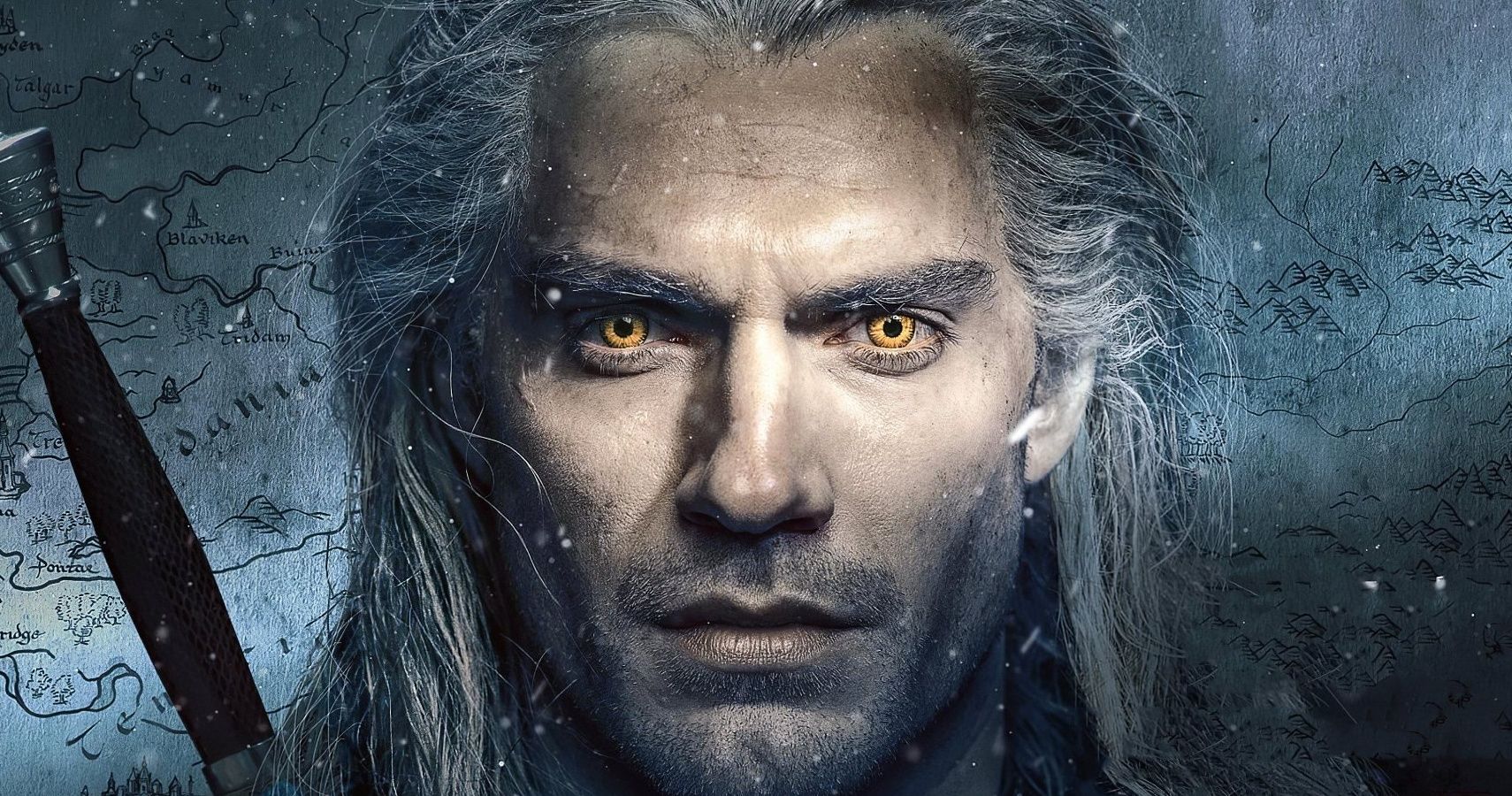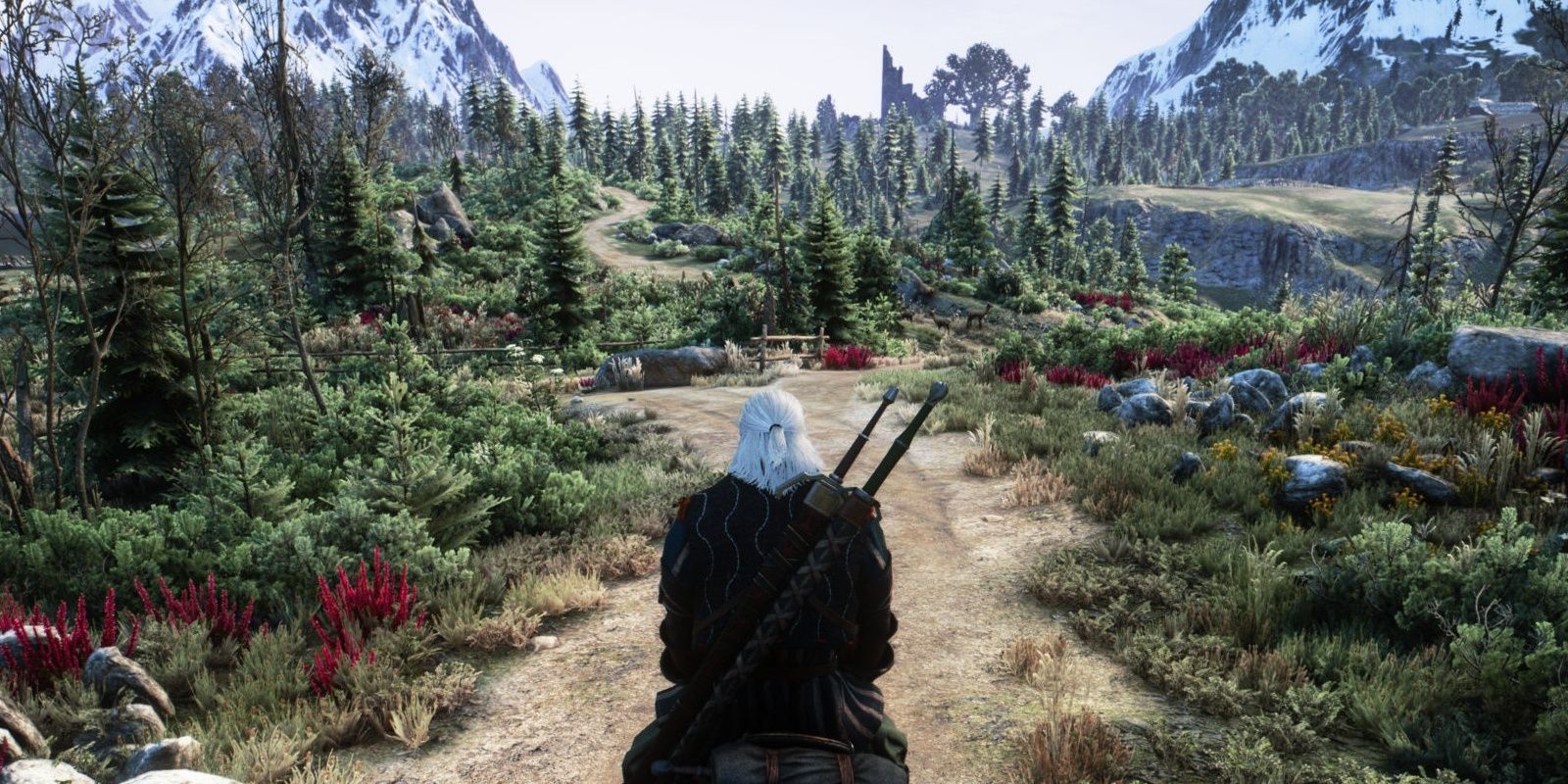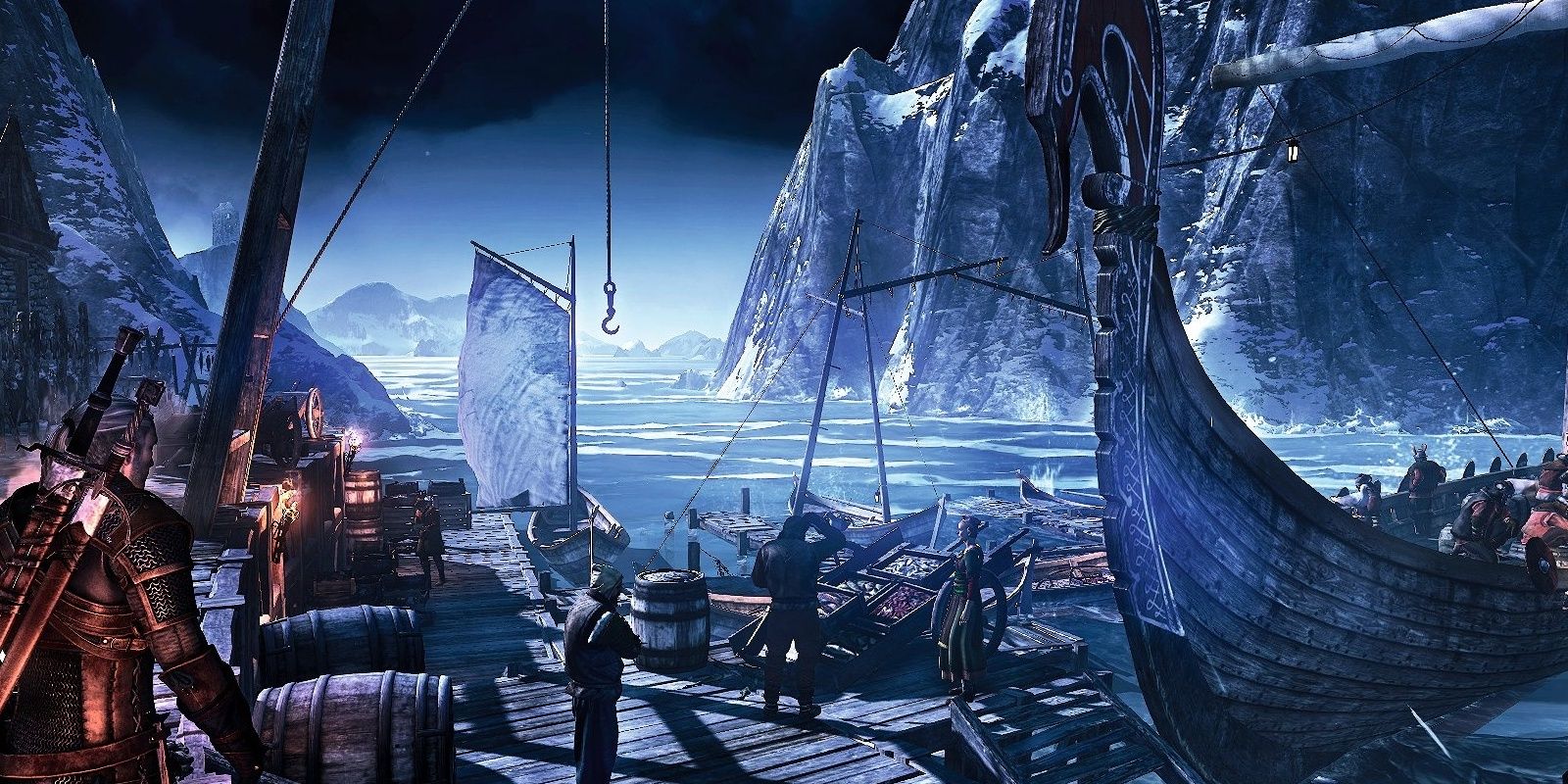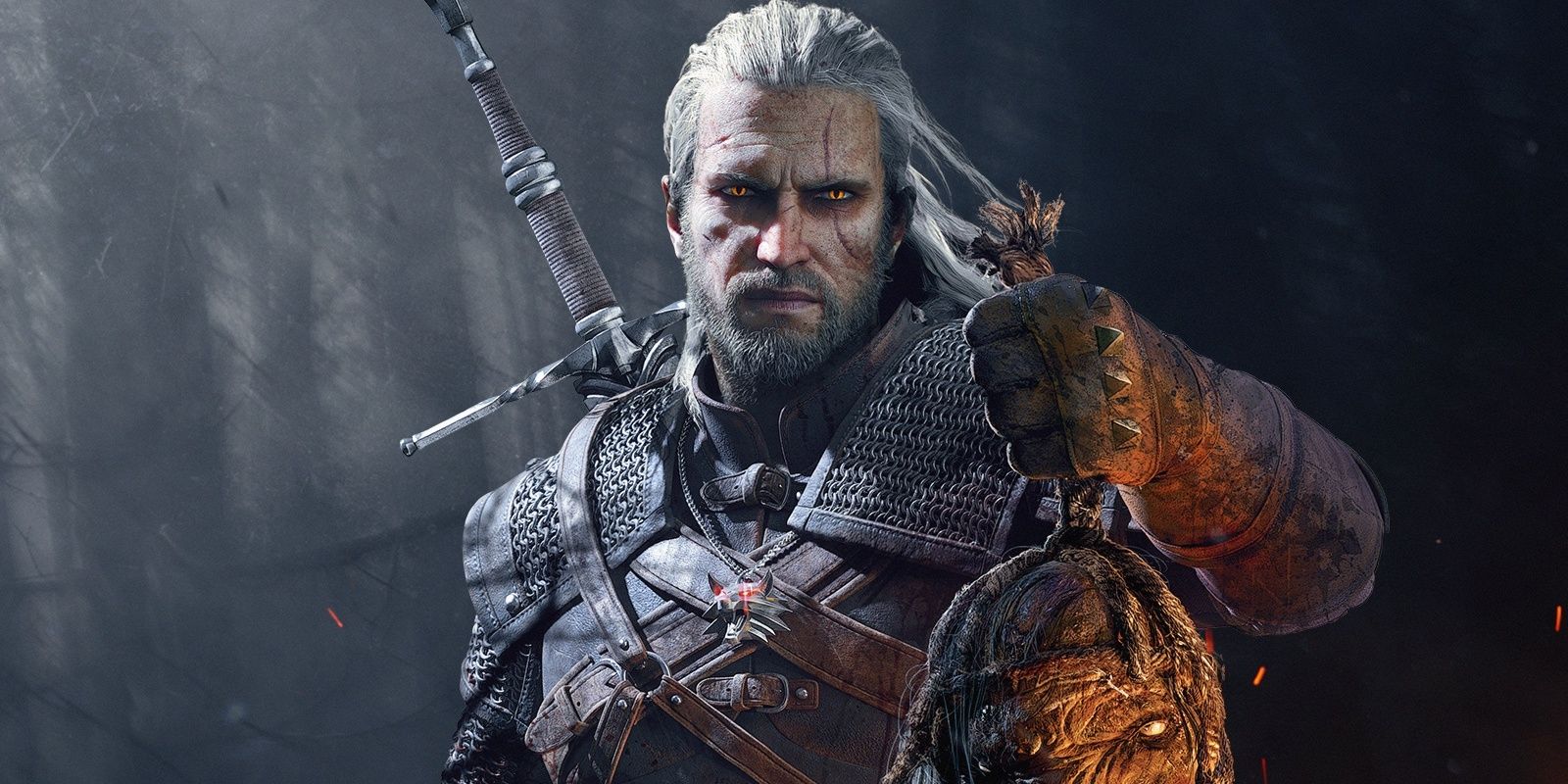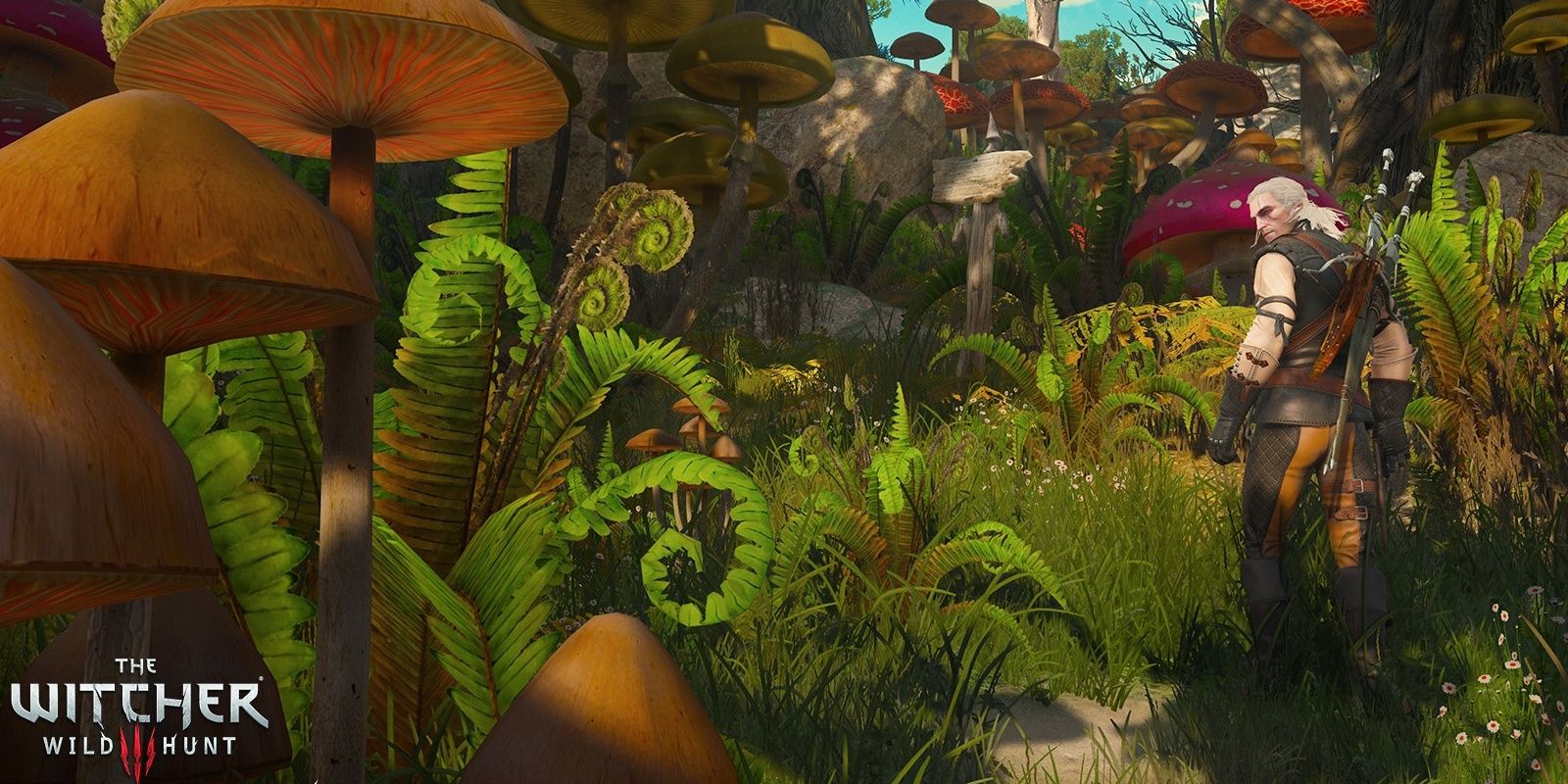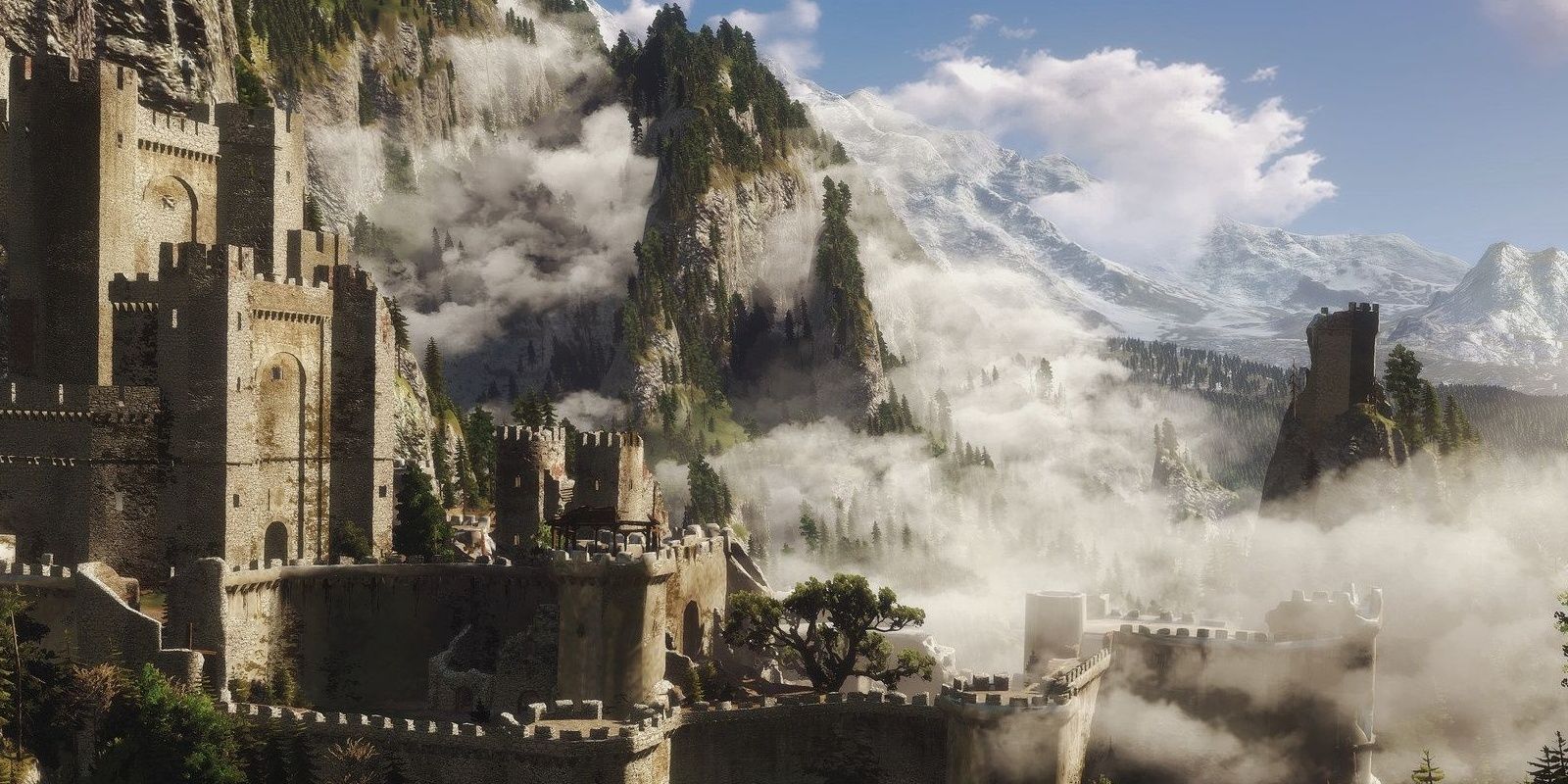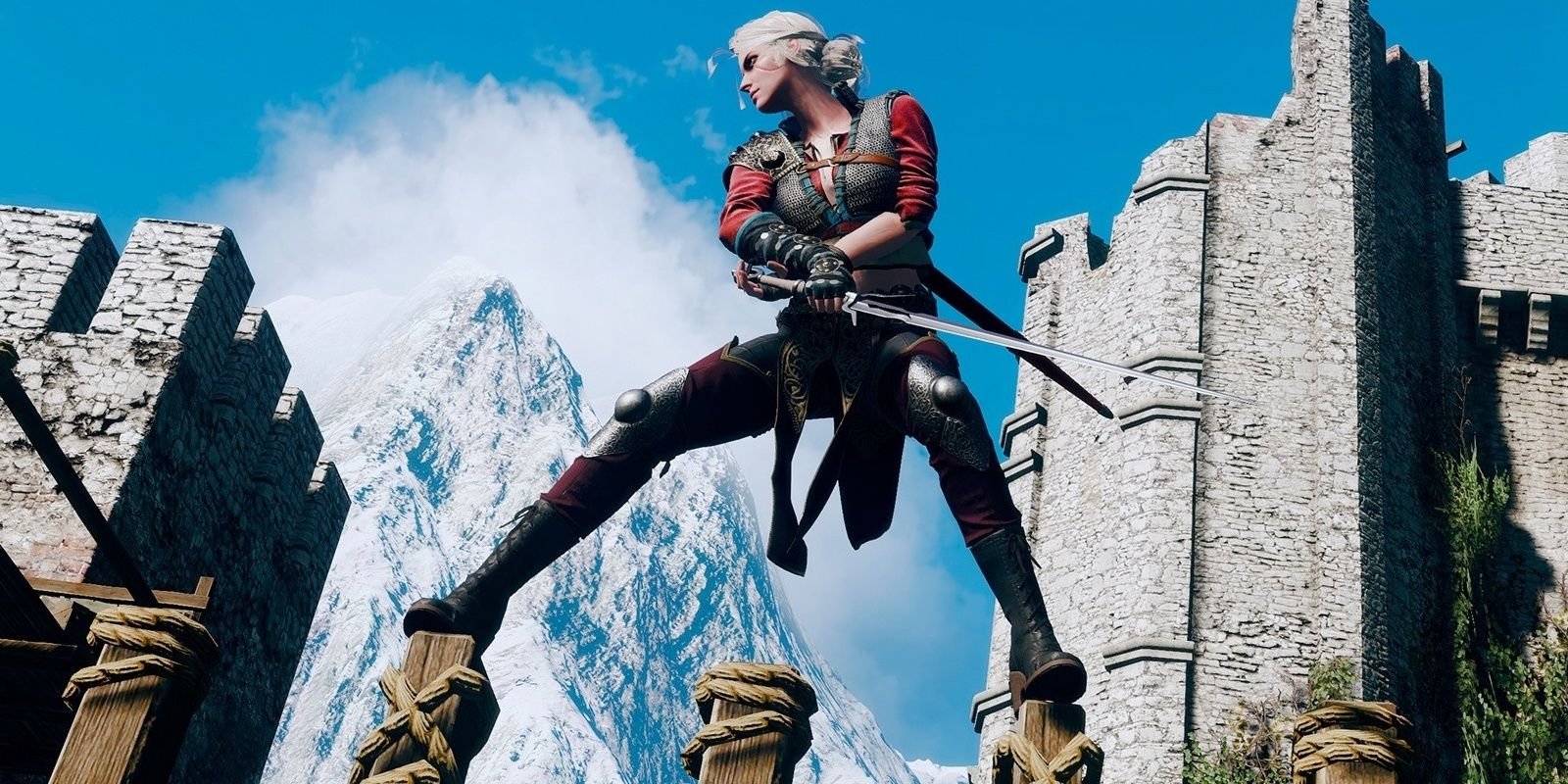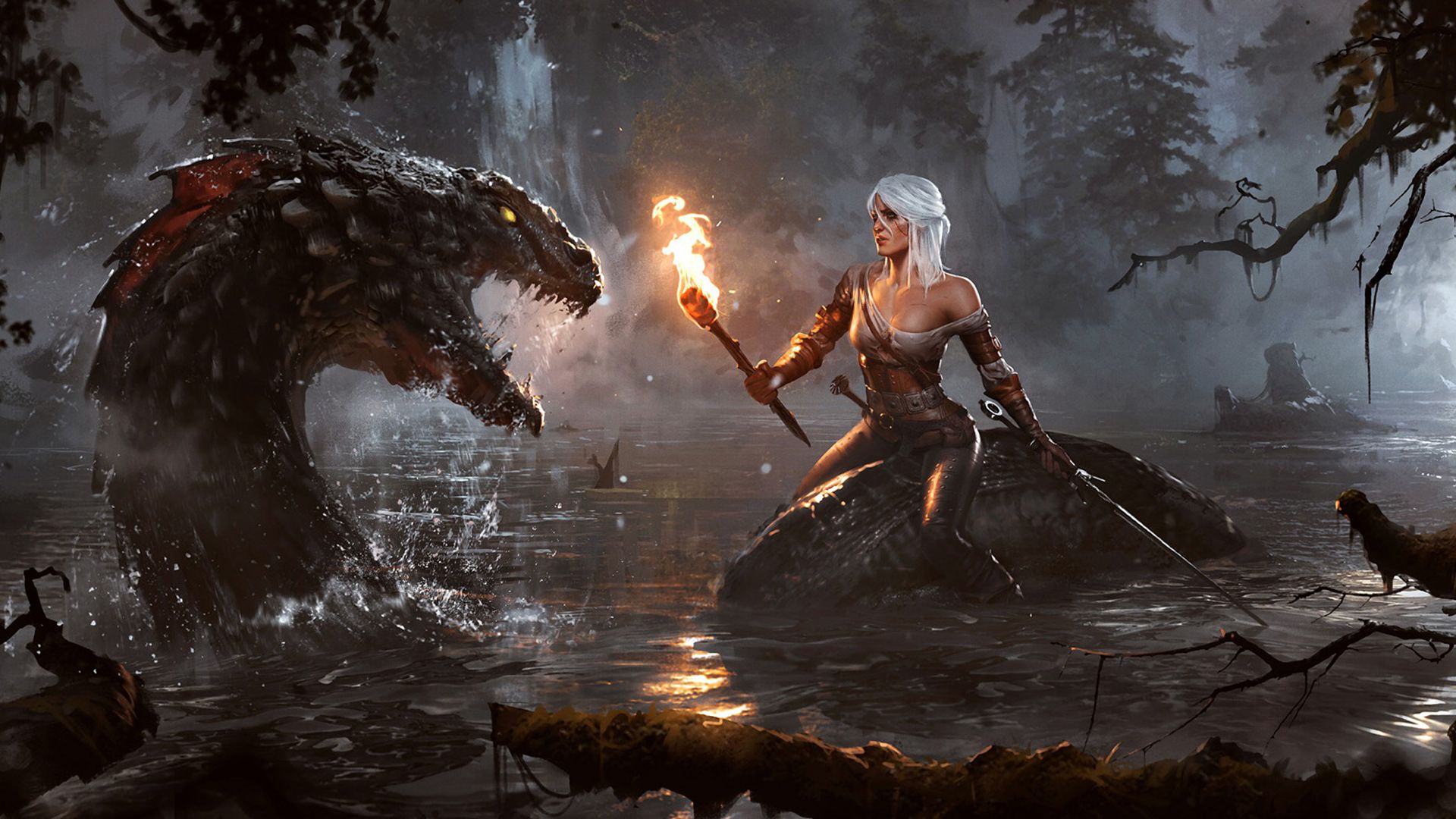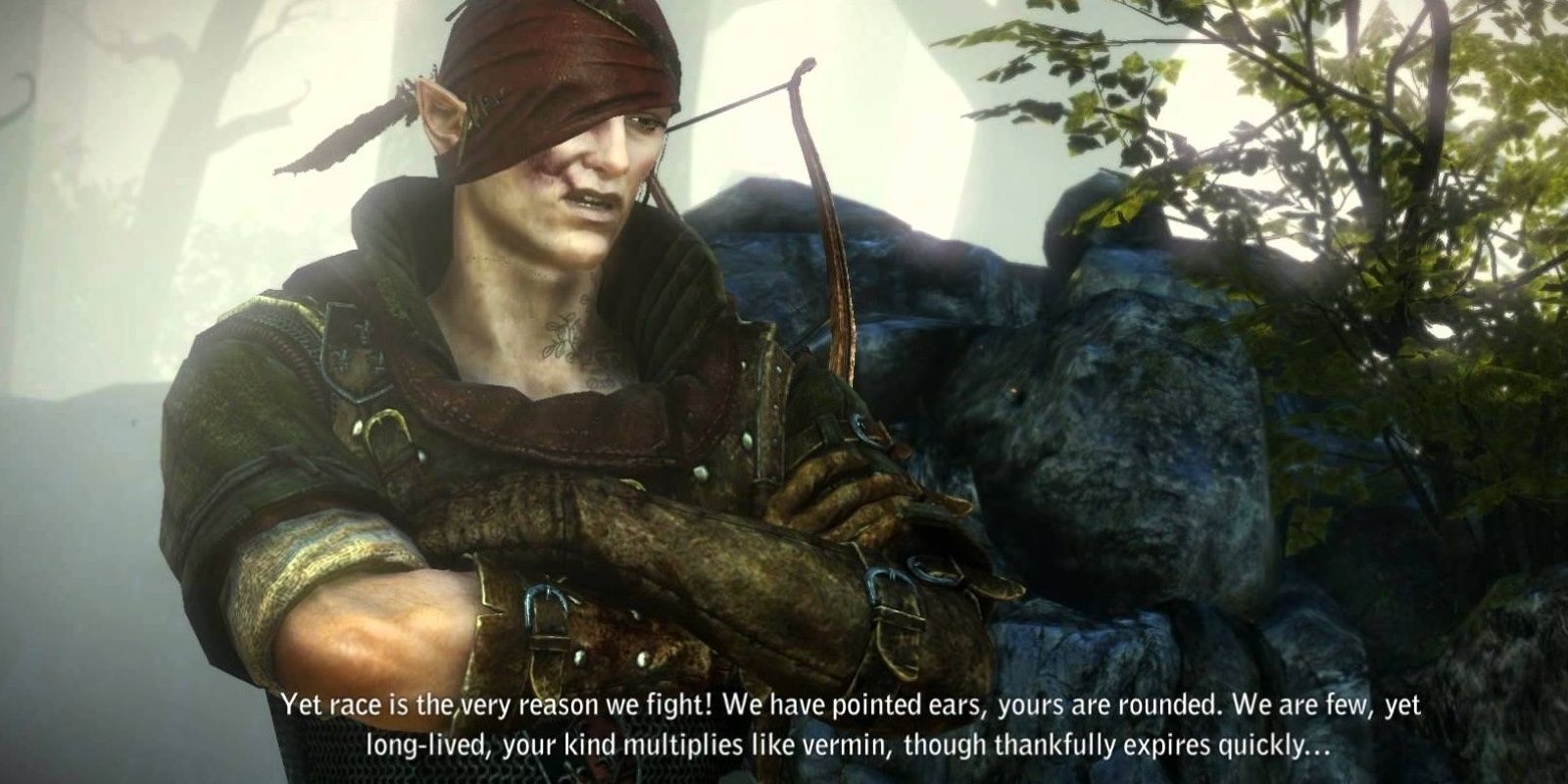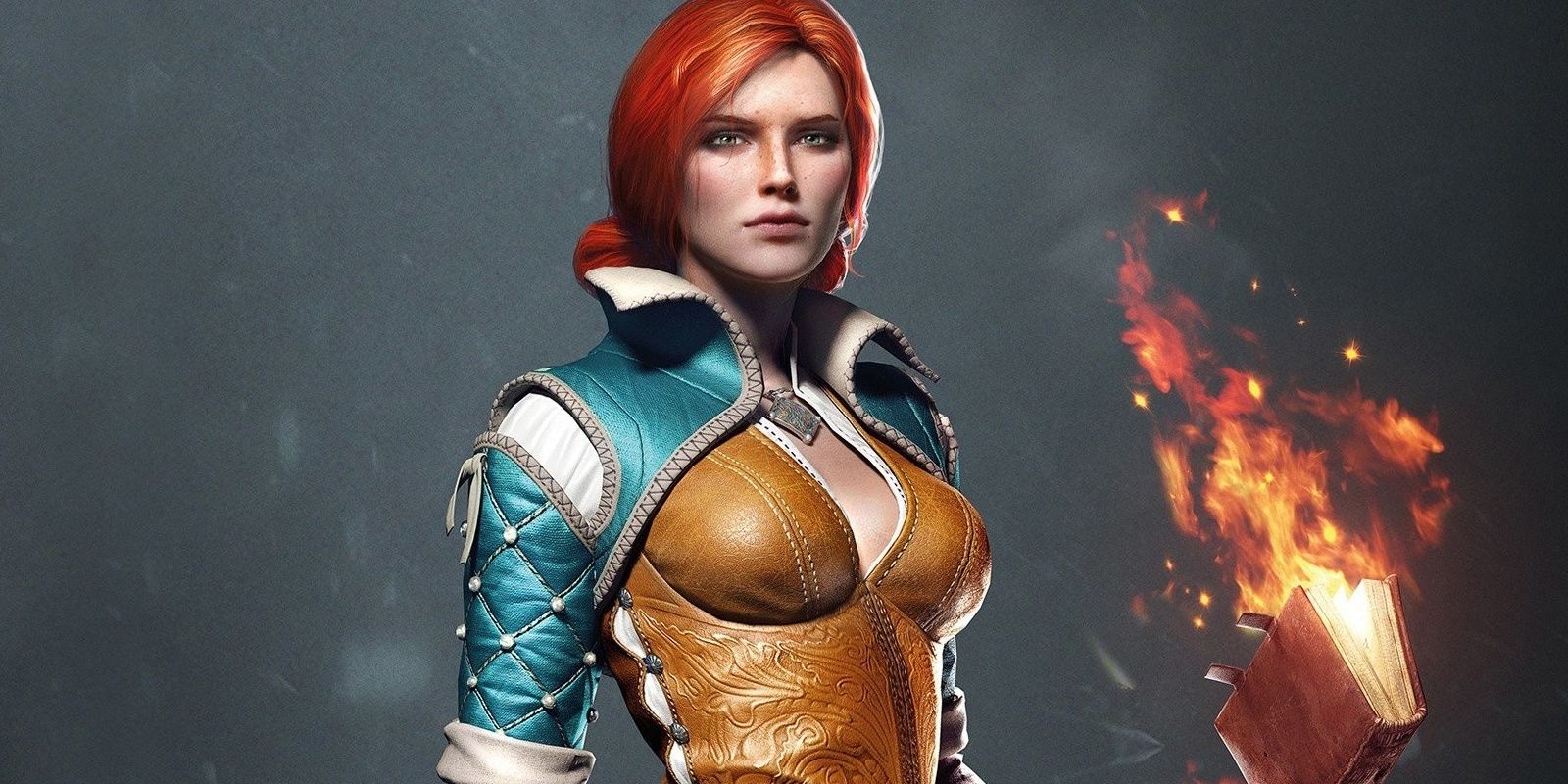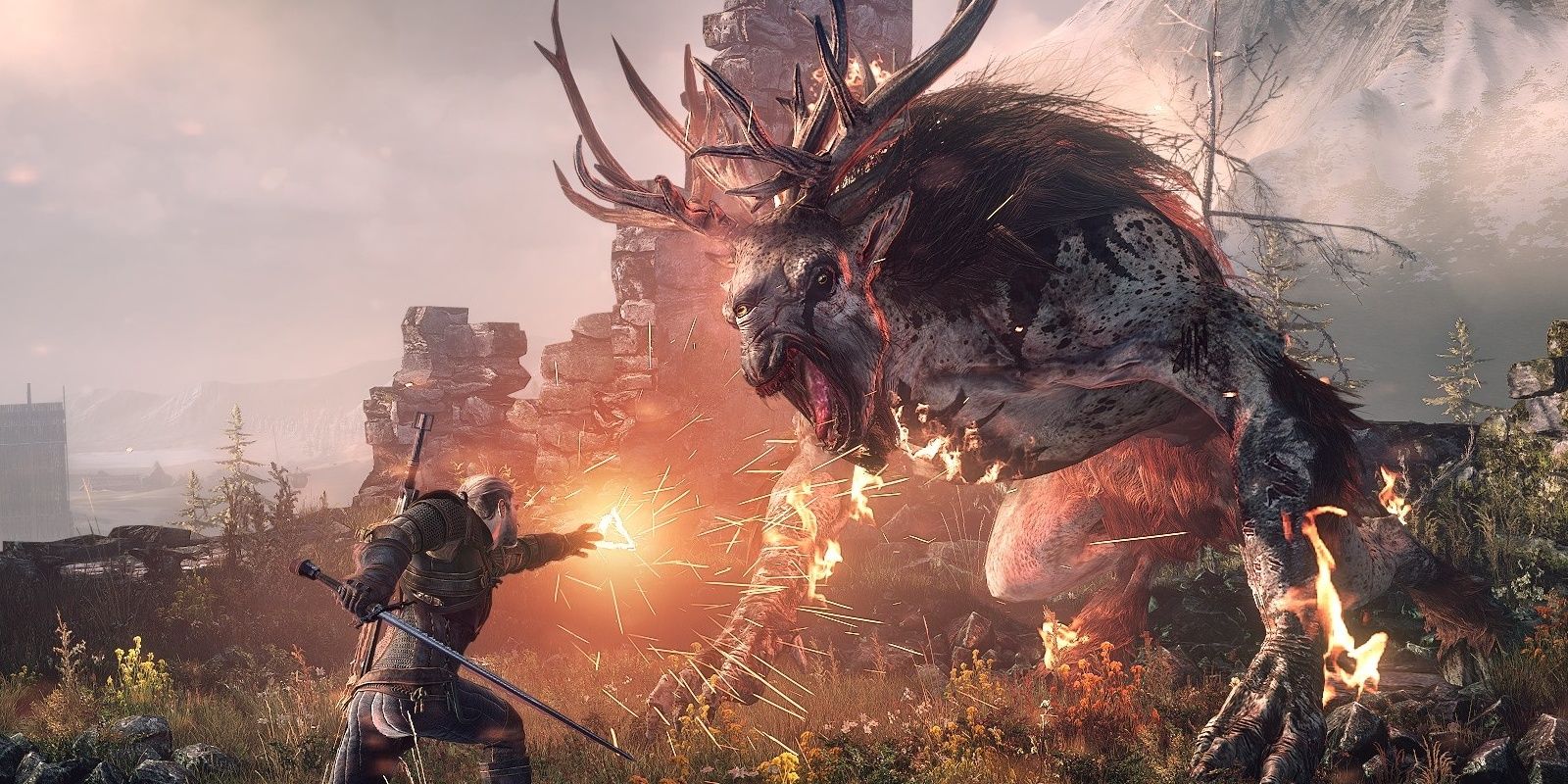With The Witcher coming to Netflix, you might be wondering: just what the heck is it? The Witcher is a long-running series of books and video games created by Andrzej Sapkowski. The world draws heavily from Slavic folklore, setting it apart from more traditional fantasy tropes. The books originated in Poland, but the series has garnered international acclaim since its inception.
The Netflix series airs on December 20th, and if you're new to the franchise, you might be a little confused. So if you're a beginner to the series or just want to learn a bit more, this article will get you up to speed.
What IS The World Of The Witcher?
Describing the lore of The Witcher in a paragraph would be like explaining the history of Canada in a sentence. There's a lot to cover here.
But simply put, the world of The Witcher is a world in flux. Imagine if Lord Of The Rings slowly transformed into Game Of Thrones. Good and evil used to be simple. Monsters were bad, kings were just, and gallant heroes would always save the day. At worst, you'd get a Witcher to do your dirty work, and continue to live in blissful ignorance of the true horrors of the world.
But things aren't simple anymore. Morality is complex. Evil takes many forms. Some monsters are going extinct, and simply wish to be left alone. Politicians play with people's lives to further their own agendas. No one is innocent, and everyone is the hero of their own story.
This is the world of Geralt, a magically-mutated monster hunter. He's watched the world change over his long life, and his services are becoming much more valuable to corrupt politicians than to scared townsfolk. The Witcher is the story of Geralt's adventures in a world where monsters hide in plain sight.
The World Of The Witcher Is More Advanced Than It Seems
Despite the medieval trappings of the series, its world is more advanced than you might think. There's a lot of overlap between magic and science in this setting. Concepts like genetics and mutations are well-known among the educated, and both can be manipulated through magic. Magic itself originates from another dimension, which collided with our own in ancient times.
This merging of traditional fantasy and modern science is part of what sets The Witcher series apart. It makes the world feel both fantastical and relatable at the same time.
What ARE Witchers, Anyway?
The Witchers themselves are a perfect example of how the series fuses science with magic. Put simply; Witchers are magical mutants. Through a mixture of intense training and blasphemous alchemy, they're granted supernatural abilities that allow them to hunt monsters. One part detective, one part mercenary, Witchers are inhumanly fast, strong, and notoriously hard to kill.
In the world of The Witcher, the Witchers themselves are regarded with both awe and disgust. Witchers are seen as a necessary evil, a way to fight fire with fire. Some believe that Witchers are so warped in body and mind that they no longer feel emotion. The Witchers themselves do little to quell these superstitions. They're renowned for their cold, ruthless ways, valuing money and power over human life. Even Geralt can be callous and cynical, though he grows more compassionate as time goes on.
Witcher Potions Would Kill You With A Sip
Magic potions are a staple of the genre. But, even within the realm of fantasy, they're not very believable. After all, why does anyone die at all if a health potion can instantly cure you?
Well, The Witcher explains this in an interesting way. While minor potions are used throughout the world, the most potent elixirs are reserved for Witchers. These Witcher potions are so powerful that they would instantly kill an ordinary human. Meanwhile, a Witcher's metabolism is designed to handle all sorts of volatile fluids, allowing them to drink these potions with (relative) ease.
With these potions, a Witcher can enhance their already superhuman abilities. But even they have their limits. Too many potions at once can kill even a Witcher, forcing Geralt to use them with caution.
There Are Several Witcher Schools
Witchers are far from a united force. Each has their own methods, agenda, and school of origin.
There are seven known Witcher schools, and each uses an animal as its namesake. Witcher schools have a shady reputation, but some are worse than others. Witchers from The School Of The Cat are basically hitmen, killing politicians for coin. Meanwhile, those from The School Of The Griffin are known for their social etiquette, at least compared to their less cultured brethren.
Witcher Schools Are Not A Fun Place
But no matter which school you're from, becoming a Witcher is a grueling, painful process. In general, Witcher candidates are taken in as young boys. They're often orphans or unwanted children, and joining a Witcher School is their only option. What follows is the most intense training imaginable.
Students who survive are faced with "Trial Of The Grasses": the secret process that transforms normal boys into inhuman mutants. Only 3 in 10 survive.
Despite all this cruelty, Witchers form a bond with each other that stays with them their entire lives. Geralt, in particular, is close to his mentor Vesemir, who treats him like a son.
The World Is In The Midst Of A Massive War
Most of the series takes place within the Northern Kingdoms, a fractured region of petty kings and warlords. But to the south lies the Nilfgaardian Empire, an imperialist regime intent on conquering the north. Over the years they've managed to annex several kingdoms, causing massive unrest within the region.
But Nilfgaardians are more than mustache-twirling villains. Nilfgaard is a prosperous land with a thriving economy, and many believe its dominance over the world is for the greater good. The North has always been a volatile region full of strife and xenophobia. Meanwhile, Nilfgaard promises unity and an equal place for all species. Because of this, it's not uncommon for northerners to "defect" to the south.
Many Non-Humans Side With The Empire
Because of the widespread hatred of non-humans in the north, many of them side with the Empire. Known as Scoia'tael, these soldiers serve as guerilla fighters against the Nordlings, setting traps and ambushing the enemy when they least expect it. Their name is derived from the Elvish word for "squirrel," as they're known for decorating their armor with squirrel tails.
As you might expect, the presence of these Scoia'tael has only inflamed racial tensions in the north, which in turn encourages more non-humans to join their ranks. Whether this is all part of a Nilfgaardian plot is anyone's guess.
Mages Are Mutants As Well
But Witchers aren't the only mutants in the world. So-called "mages" are in fact mutants themselves. Unlike Witchers, who gain their powers through magical science, some people are born with magical abilities. Known as "sources," most die at an early age or are driven mad by their powers. Those who survive are sent to magical academies to hone their skills.
Due to their shared role as outcasts, Witchers, and wizards have been known to befriend one another. Geralt, in particular, has had numerous relationships with witches and counts many among his closest friends.
Magic Comes From Another Dimension
Magic isn't a natural force in the world of The Witcher. All of this changed with The Conjunction Of The Spheres, an astrological event that stranded many supernatural beings on the same planet. Ghouls, vampires, and possibly even humans are aliens whose own worlds were lost or destroyed. Native species like Elves and Dwarves couldn't drive back this onslaught of invaders and were driven to the fringes of society.
But whatever caused this event, the result was the introduction of magic to human culture, a force of chaos that can warp reality itself. Depending on your perspective, magic is either a blessing, a curse, or a form of science like any other. Whatever the case, magic is not a force to be trifled with!

